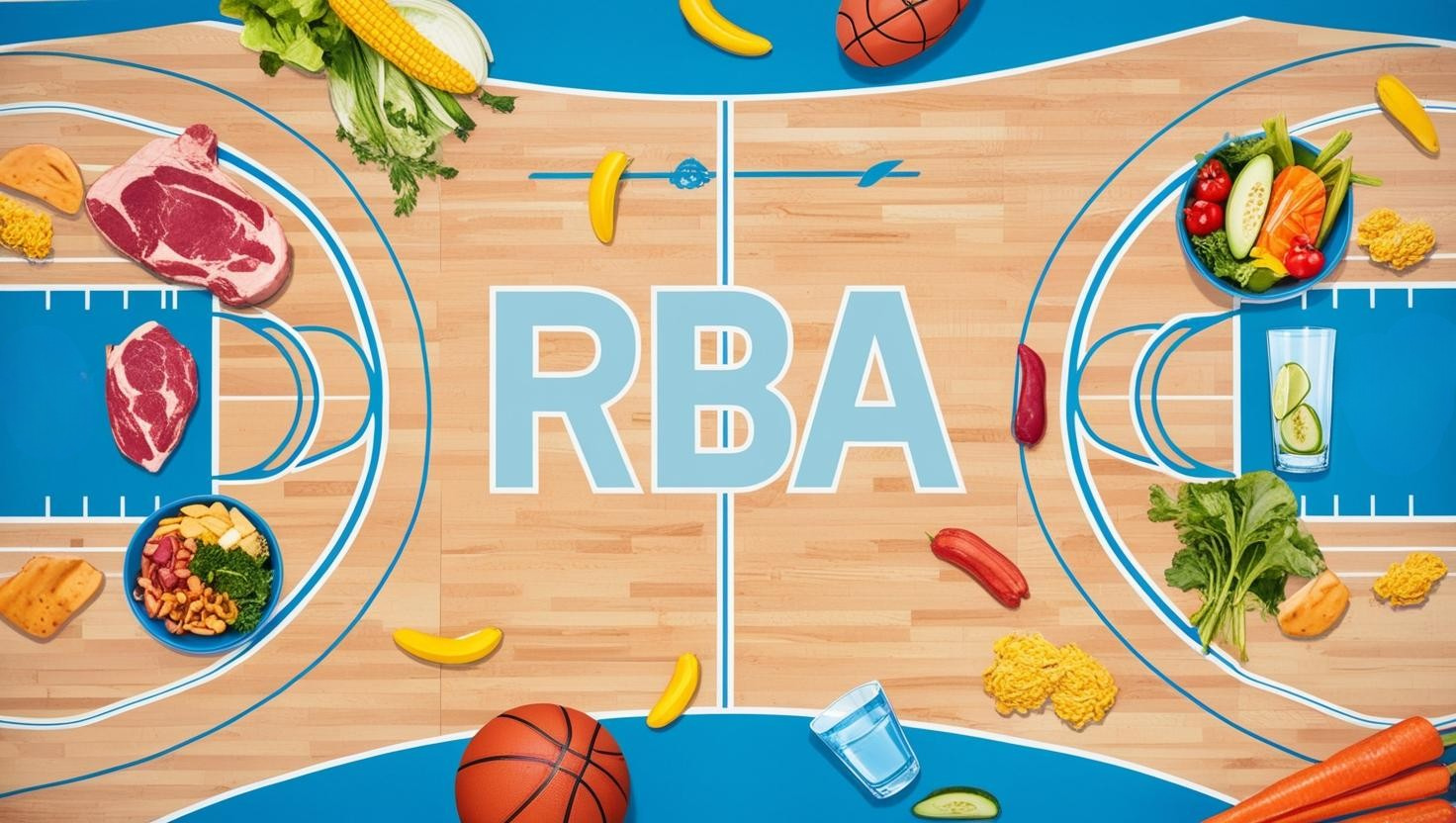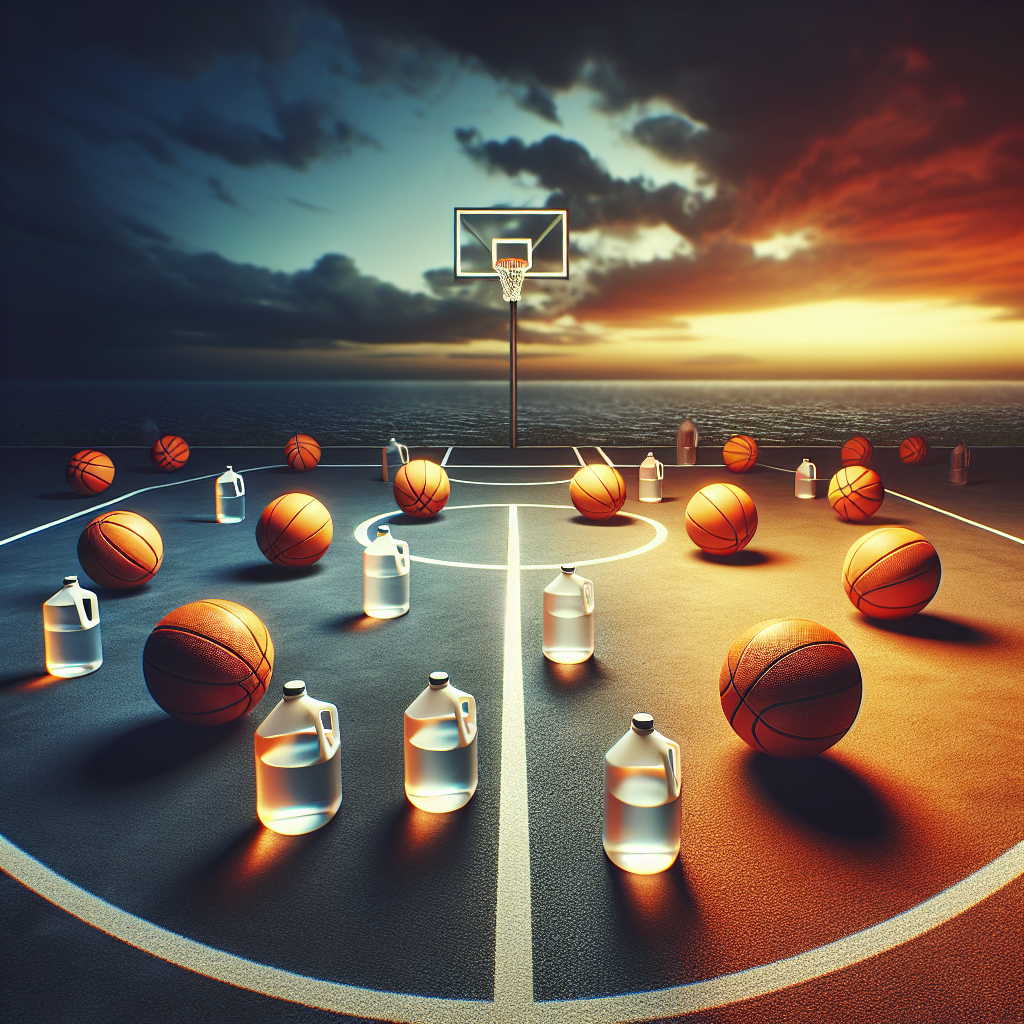Fueling Future Stars

Nutrition Tips for Young Basketball Players
Young basketball players pour their heart and soul into the game, honing their skills and pushing their limits on the court. But did you know that what they eat off the court is just as crucial for their development and performance? Think of nutrition as the fuel that powers their athletic journey, providing the energy, strength, and recovery needed to excel. This article touches on the essential nutrition knowledge for basketball athletes and their parents, offering practical tips to build healthy habits.
Key Nutrients for Young Athletes
Just like a well-built team, a young athlete's diet needs a balance of key players: carbohydrates, proteins, fats, vitamins, and minerals.
Carbohydrates: The Energy All-Stars
Carbs are the body's primary fuel source, especially important for the bursts of energy and sustained activity that basketball demands. Think of them as the gasoline in the tank. Aim for 45-65% of daily calories from good sources like whole grains (oats, brown rice, whole-wheat bread, pasta), fruits, vegetables, milk, and yogurt. These provide sustained energy release, unlike the quick spikes and crashes from sugary processed foods.
Proteins: The Muscle Builders and Repair Crew
Protein is essential for muscle growth, repair, and overall tissue maintenance. Young athletes generally need 1.2-2.0 grams of protein per kilogram of body weight daily. Great sources include lean meats, poultry, fish, eggs, low-fat dairy, beans, lentils, tofu, nuts, and seeds. Remember, more isn't always better, and whole food sources are usually sufficient.
Fats: The Long-Haul Energy Providers
Fats provide long-lasting energy and are crucial for hormone regulation and vitamin absorption. Aim for 20-35% of daily calories from healthy unsaturated fats found in vegetable oils, fish, nuts, seeds, and avocados. Limit saturated and trans fats found in processed and fatty foods.
Vitamins and Minerals: The Essential Supporters
Micronutrients like calcium, vitamin D, and iron are vital for bone health, energy, and overall function. A balanced diet should provide enough, but pay attention to these key players:
- Calcium: For strong bones (dairy, leafy greens, fortified grains).
- Vitamin D: Helps the body absorb calcium (fortified milk, sunlight).
- Iron: Carries oxygen to muscles (lean meat, fish, poultry, leafy greens, fortified cereals).
Game On: In-Season Nutrition Strategies
When the season is in full swing, timing and the right types of fuel become paramount.
Pre-Game Power-Up:
- 3-4 Hours Before: A carbohydrate-rich meal (1-4 grams of carbs per kg of body weight) with moderate protein and low fat to fuel glycogen stores. Examples include whole wheat pasta with marinara and lean turkey, or grilled chicken with brown rice.
- 1-3 Hours Before: A lighter, easy-to-digest carbohydrate snack like fruit, crackers, or a bagel. Aim for about 1 gram of carbohydrate per kilogram of body weight for each hour before activity, up to four hours in advance.
- Hydration is Key: Drink 1-2 glasses of water or a sports drink 1-2 hours before, and another 8 ounces 20 minutes before.
Fueling During the Game:
- Hydrate Intentionally: During timeouts and breaks, drink 4-8 ounces of water or a sports drink every 15 minutes. For games longer than 60 minutes, especially in heat, sports drinks with 6-8% carbohydrates and electrolytes are beneficial.
- Avoid Sugary Drinks and Juice: These can cause stomachaches.
Post-Game Recovery:
- Refuel Quickly: Within 30 minutes, consume a snack or meal with both carbohydrates and protein to replenish energy and repair muscles. Aim for a 3:1 or 4:1 carbohydrate-to-protein ratio.
- Hydrate: Drink about three cups of fluid for every pound of weight lost.
- Good Options: Chocolate milk, yogurt with fruit and nuts, a banana with peanut butter, or a sports bar with an orange.
The Hydration Edge: Staying Ahead of the Game
Water is a young athlete's best friend! Proper hydration is crucial for energy, muscle function, focus, and preventing injuries. Dehydration can significantly impact performance.
How Much to Drink:
- Ages 9-12: About 2 liters (10 cups) daily.
- Ages 13-18: About 3 liters (14 cups) daily.
- General Rule: ½ to 1 ounce of water per pound of body weight daily.
- Increase Intake: Before, during, and after physical activity.
What to Drink:
- Water: The best choice, especially for activities under an hour.
- Sports Drinks: Beneficial for prolonged or intense exercise (over 60 minutes) to replace electrolytes and provide carbohydrates. Look for 5-8% carbohydrate and 110-240 mg of sodium per 8 oz serving.
- Limit: Sugary drinks, carbonated beverages, and most fruit juices.
- Avoid: Energy drinks.
- Post-Exercise: Chocolate milk can be a good recovery option.
The Final Buzzer: Fueling for Success
Nutrition is a game-changer for young basketball players. By understanding the importance of balanced eating, strategic fueling, and consistent hydration, athletes and their parents can work together to optimize performance, support healthy development, and build a foundation for a lifetime of healthy habits. Remember, fueling future stars starts with the right nutrition plan!

